STUDENTS
The GIS has a research environment that is highly conducive for training the next generation of scientists working in genomic sciences. We welcome students at various levels to participate in exciting, modern biological research alongside our scientific staff. We host students at various stages of their development from university and polytechnic students to PhD students enrolled in local or foreign universities.
PHD PROGRAMMES
The GIS welcomes PhD students who are eager to apply modern genomic technologies to problems that lie at the intersection of basic biology and its applications to medicine. The collaborative research environment at GIS is conducive to the training of modern biologists, who increasingly require access to technologies and expertise that lie beyond the realm of a single laboratory. We have been able to provide an excellent training ground for many a young scientist who have gone on to contribute to the larger biomedical landscape. Students enter GIS through scholarships awarded by the A*STAR Graduate Academy (A*GA). For a list of scholarships, click here.
A*STAR Graduate Scholarship (AGS)
Singaporeans can apply to the A*STAR Graduate Scholarship (Singapore) programme with enrollment in the graduate program of either the National University of Singapore (NUS) & Nanyang Technological University (NTU).
Singapore International Graduate Award (SINGA)
Under the SINGA, international students can receive their PhD training at the GIS. Students will be enrolled in NUS or NTU. For more information, click here.
A*STAR Research Attachment Programme (ARAP)
The ARAP is a collaboration between A*STAR and partner universities to provide shared research opportunities. Under this programme, PhD students enrolled in overseas universities will spend one to two years at GIS under the joint supervision of staff of GIS and the overseas university. For more information, click here.
If you have any questions, please contact:
Office of Academic Affairs
Genome Institute of Singapore
Genome, 60 Biopolis Street, #02-01
Singapore 138672
E-mail: gisstudent@gis.a-star.edu.sg
ATTACHMENT PROGRAMMES
GIS welcomes research attachments for computer science, engineering and biological science undergraduates from local and overseas universities as well as local polytechnics. In order to have a meaningful research experience, we encourage an attachment duration of at least 12 weeks fulltime (or the equivalent in a part-time attachment). Experience at the GIS has led to several of our attachment students moving on into graduate programmes.
If you are an International student consider applying for the Singapore International Pre-Graduate Award (SIPGA) to support your research attachment. For information on the SIPGA, click here. Do give about 5-6 months for the application and paperwork to be completed in order to start during your desired time window.
Overseas Singaporeans may consider the Research Attachment for Overseas Singaporeans (RAOS) to support their research attachment. For information on RAOS, click here.
How to Apply:
Students interested in working with GIS are encouraged to, write directly to GIS scientists to ask if they can be an attachment student in their lab or work through your university/polytechnic attachment programmes. If they are applying for a scholarship (SIPGA, RAOS) GIS will assist in the submission of the applications. The instructions on the application are found on the A*GA website (SIPGA, RAOS).
If you have any questions, please contact:
Office of Academic Affairs
Genome Institute of Singapore
Genome, 60 Biopolis Street, #02-01
Singapore 138672
E-mail: gisstudent@gis.a-star.edu.sg
TESTIMONIALS
Cheryl CHAN Xueli
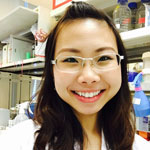
Cheryl CHAN Xueli
PhD Student
Human Genetics
Genome Institute of Singapore
Doing a PhD at GIS means learning and maturing, both in and outside science, within an incredibly nurturing yet academically-driven community.
The GIS family is about 300-people strong – yes, we pride ourselves on being a large extended family - and the amazing thing is, almost everyone knows everyone within the institute. This allows for easier collaborations and tutelage between labs and scientists of different ranks, on different levels. I am never afraid to approach a bioinformatician on level 3 for help, a fellow PhD student on level 8 for reagents, and a senior scientist on level 6 for advice. Having started off as a research officer, I believe it is this culture that has convinced me to stay on in GIS as a PhD student.
GIS looks to develop scientists holistically – the institute instigates an annual update from employees of all ranks (students to postdocs to PIs), which encourages active discussion, hones scientific thinking, and most importantly, allows bidirectional feedback; it also organises numerous celebrations to help us unwind and relax, because we know "all work and no play makes Jack a dull boy".
It is undeniable that GIS has state-of-the-art technology, ranging from the latest sequencing platforms (PacBio and Illumina) to the Single-Cell Omics Centre, which has enabled me to perform cutting edge experiments to explore virtually any scientific question I want. For that and reasons mentioned above, I am very grateful to be here and would not have undertaken my PhD anywhere else.
Deniz DEMIRCIOGLU
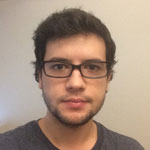
Deniz DEMIRCIOGLU
PhD Student
Computational and Systems Biology
Genome Institute of Singapore
My name is Deniz Demircioglu and I am a Computer Science PhD student studying at NUS and doing his research work in Genome Institute of Singapore (GIS).
I joined GIS through the Singapore International Graduate Award (SINGA) programme, and I am working with Dr Jonathan Göke on the analysis of RNA-seq data for unravelling the transcription regulation mechanisms for different physiological conditions.
GIS provides a multi-cultural and multi-disciplinary working environment for everyone from different backgrounds. As a PhD student with a computational background, I have the opportunity to discuss both computational and biological problems with both PhD students from all over the world as well as principal investigators who are experts in their fields of research.
This interdisciplinary research approach allows me to expand my horizon and prepares me for future research problems. Additionally, GIS is located within the vibrant research hub of Singapore – Biopolis – and this provides a contemporary and bustling working environment as well.
Kevin Andrew Uy GONZALES
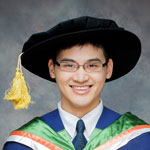
Kevin Andrew Uy GONZALES
Postdoctoral Fellow (former PhD student)
Stem Cell and Regenerative Biology
Genome Institute of Singapore
When I decided to join GIS for my PhD studies, I did not have a very good idea of what I was signing up for. Little did I know that this would be one of the best decisions I have ever made!
My PhD training in GIS has been a life-changing experience. Working on embryonic stem cells has ingrained in me a strict sense of responsibility, not just in having to nurture these cells every day (including holidays!), but also in being independent, resilient and rigorous. Working with Prof Ng Huck Hui under the GIS environment has taught me how to think scientifically, how to work collaboratively, how to persevere in times of stress, and how to drive a project to completion.
My scientific journey in GIS has culminated in a first-author article published in Cell; this achievement allowed me to visit some of the most prestigious laboratories in the world, including Dr Elaine Fuchs' lab at the Rockefeller University, which I now work in as a Postdoc.
Overall, GIS has equipped me with many skills, both scientific and life, which I will bring with me throughout my career.
Astrid IRWANTO
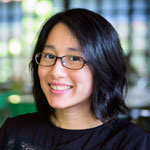
Astrid IRWANTO
Innovation Fellow (former PhD Student)
Human Genetics
Genome Institute of Singapore
It's nice to reflect back once in a while to the past learning experiences that have shaped me to where I am today. It’s been eight years. From someone who was shy, inexperienced, and with little understanding of genomics, I’ve grown a lot since I came to GIS as an intern, all the way to now being a fellow. The people, the science, the technology and the culture have shaped me and many more of my fellow students and colleagues. Some of these are intangible assets of the institute that I often take for granted.
GIS had been my first choice to conduct my PhD research due to its well-known expertise in genomics where my passion lies. So while waiting for the approval of my PhD scholarship, I started off as an intern. The lab members in Dr Edwin Cheung’s group gave me the first impression of how scientists in Singapore pursue their science so professionally, and how warm they are to foreigners like me. They became my first family away from home. Gradually I took the pace and joined Dr Liu Jianjun in the Human Genetics group as a PhD student. Finally I found myself contributing to GIS’ high quality science and being a part of its highly collaborative environment through my work.
GIS has trained me to be a scientist with high integrity and an open mind. I’m grateful to be given the opportunity to be involved in multiple international collaborations. I would say that I also have a lot of fun and much laughter in GIS, and I wouldn’t have had my training elsewhere.
LI Jingmei
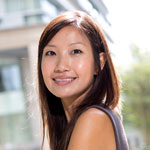
LI Jingmei
Senior Research Scientist (former PhD student)
Human Genetics
Genome Institute of Singapore
Over chats with students and postdocs, one question I’m frequently asked is how the working environment is like at GIS. I usually pause for a moment (for dramatic effect, no less), and reply "I started as an attachment student at GIS in 2006. Then I had one foot out of Singapore (joint PhD programme between GIS and Karolinska Institutet in Sweden). After that, I had both feet out (postdoc and subsequently a faculty position at KI). But here I am, back again over a decade later at GIS to lead my own group. GIS is like family. I would not have come back if I did not enjoy working here."
Wendy SOON
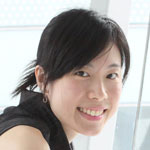
Wendy SOON
Manager (former PhD student)
Next Generation Sequencing Platform
Genome Institute of Singapore
GIS is home. Having joined and left GIS four times between high school and post-graduate school, one would have thought that I had had enough of the institute. But here I am, back for the 5th time (and 5th orientation!) and building my career here. The best things about GIS that have drawn me back time and again are:
(1) the collaborative nature. I quote the founding Executive Director of GIS, that the default answer to a request for collaboration at GIS is always a “YES”. I am a strong believer that collaboration is better than competition; the strong culture of working closely together amongst the labs in GIS is key to great science.
(2) the multidisciplinary environment. Having been in a Stem Cell lab, a Microarray lab, a Cancer Genomics lab and now leading the NGS technology platform, GIS has a wide range of opportunities for its students and staff. This multidisciplinary environment also helps to facilitate greater collaboration between labs of complementary nature.
(3) the state-of-the-art technology. Since its inception, GIS has always been one of the earliest adopters of the latest genomics technologies. This not only provides easy access to state-of-the-art technologies to facilitate scientific explorations, it also includes a long accumulated expertise in genomics technologies over the years.
TAM Wai Leong
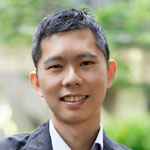
TAM Wai Leong
Senior Research Scientist (former PhD student)
Cancer Therapeutics and Stratified Oncology
Genome Institute of Singapore
Having the opportunity to join GIS, just as the biomedical endeavours of Singapore was taking off in the early 2000s, has been an extraordinary privilege.
GIS started with a humble beginning: from a fairly small, tight-knitted community of brilliant scientists from around the world, to one which grew quickly and became transformed into a world-class research organisation. What defines GIS, in the past and now, is culture and research excellence. These are the key distinguishing features that attracted me to pursue my graduate training, and later on, to build a scientific career at GIS.
The graduate programme is intensive and rigorous. At this premier biomedical research institute, graduate students have the opportunity to develop groundbreaking ideas, and engage in cutting-edge science. The exciting and challenging projects interface innovative biological questions with advanced state-of-the-art technologies housed here – this enables us to approach and solve important biological and clinical problems that very few others can do. I was very fortunate to be part of the highly-regarded Stem Cell Biology Programme that was led by renowned investigators Profs Bing Lim and Ng Huck Hui. It represents a 'golden era' when we made landmark discoveries that helped position Singapore as an emerging research powerhouse that could punch above her weight on the global biomedical research map.
The training I received had a long-lasting impact that prepared me well to adapt to the ever-changing research environment. Here, graduate trainees are immersed in a vibrant community whereby we were taught to identify important and meaningful biological problems, and also to adopt a ‘macro’ perspective of the research topic at hand. Trainees not only build an in-depth knowledge in their areas of expertise but also learn to think much more broadly. The ability to stay nimble, adaptive, and relevant are key traits that will prove invaluable as they move into academia, industry, or other biomedical-related career tracks.
Indeed, many of my peers who had trained at GIS have found great success as scientists, professors, entrepreneurs and policy shapers – both locally and internationally.
A*STAR celebrates International Women's Day

From groundbreaking discoveries to cutting-edge research, our researchers are empowering the next generation of female science, technology, engineering and mathematics (STEM) leaders.
Get inspired by our #WomeninSTEM
.png?sfvrsn=2e525642_5)